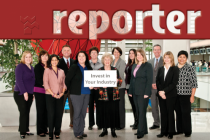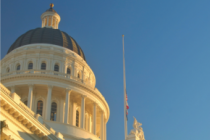Capitol Update
By Chris Wysocki, WMA State Legislative Advocate
SENATOR CONNIE LEYVA’S RESTRICTIVE RENT RELIEF BILL SENT TO APPROPRIATIONS SUSPENSE FILE
WMA is pleased to announce that Senator Connie Leyva’s SB 64 was placed on the Senate Appropriations Committee suspense file yesterday. Those bills identified as having significant cost to the state are sent to the suspense file.
The bill was recently amended to remove rental repayment provisions addressed with prior legislation and narrowed to prevent the ability of parkowners to issue 7-day notice violations.
Seven-day notices, WMA argued, encourage residents to correct “rule violations” and infractions in the Mobilehome Residency Law and are an essential tool for parkowners and residents to preserve the quality of life in their parks.
SB 64 would force parkowners to contact HCD or the Local Enforcement Agency (LEA) in the event of a rule violation, which will require assistance, including onsite inspections for reported violations. This, in turn, places significant financial pressure on these agencies.
During remote testimony yesterday, WMA staff cited the adverse fiscal effects this bill would have on the State of California, cities, counties, and the courts. The California Association of Realtors also testified in opposition to SB 64.
The Senate Appropriations Committee analysis detailed the projected costs, which led to the bill’s referral to suspense. All bills placed on suspense will remain there until a vote-only Suspense Hearing prior to the deadlines for fiscal committees to hear and report bills to the Senate Floor. Bills will either move on to the Senate Floor for further consideration or be held in committee and under submission.
GOVERNOR NEWSOM SIGNS SB 95, PAID SICK LEAVE BILL, INTO LAW
Governor Newsom signed SB 95 (Skinner) into law last Friday. An urgency measure, SB 95, takes effect immediately and requires supplemental COVID-19 paid sick leave retroactive to January 1, 2021, for businesses with 25 or more employees.
WMA joined a coalition created by the California Chamber of Commerce opposing SB 95. In its recent letter, the coalition outlined the burden this bill places on California’s struggling businesses:
“AB 84/SB 95 make an employer’s obligation to provide COVID-19 paid sick leave retroactive to January 1, 2021. Any employee who requests a retroactive payment must be paid upon request by the employee. At a time when employers are carefully planning how they will spend every penny to prepare for the future and ensure they can cover payroll, an employer could be inundated with requests for retroactive payments. Within one pay period the employer will be required to verify that the employee was in fact out for a qualifying reason and then pay the employee. Many employers are struggling to make standard payroll right now, let alone new, retroactive payments that they did not plan for. Any federal tax credits that a business may be eligible for will not make up for the immediate capital the employer must spend in payroll costs and may not cover the total cost. Further, the retroactive application of the law is a massive administrative burden. It is not clear how an employer would reconcile this law with a situation where an employee was out in January and used PTO, sick leave, or vacation and now says they are owed retroactive leave under Labor Code Section 248.2. And unless a business meticulously tracked the reasons for which an employee was out over the past few months, which they are not required to do under California law, it will be difficult for an employer to question any request for retroactive payment.
Finally, we are concerned about liability employers could face based on this retroactive mandate. An employee who believes they are now owed wages from January or February could argue that this mandate now also triggers penalties under the Labor Code. It will likely take costly litigation to resolve that issue, which would be unnecessary if AB 84/SB 95 would have explicitly provided that the obligation to pay leave beginning January 1, 2021 could not be used as the basis for claiming additional penalties. Additionally, because AB 84/SB 95 adds a new section to the California Labor Code, any error in implementing the retroactive portion of the bill or disagreement as to how much is owed under that provision is sure to lead to claims under the Private Attorneys General Act. California already leads the nation in COVID-19-related employment lawsuits. Employers cannot take any more financial hardship.”
Please click here to view a related article in The Sacramento Bee:
https://www.sacbee.com/news/article250035654.html
LEGISLATIVE, BILL ACTIVITY EXPECTED TO INCREASE FOLLOWING SPRING RECESS
State legislators will adjourn Thursday for a weeklong spring recess. Despite introducing a slew of bills, few have been scheduled for committee hearings to date. A total of 33 measures rank as top priority for WMA; of those, only three have been heard and acted upon.
We expect the pace of bills to steadily increase in the coming weeks and will keep members apprised of key developments. As always, I am reachable for comments or questions at chris@wma.org.






